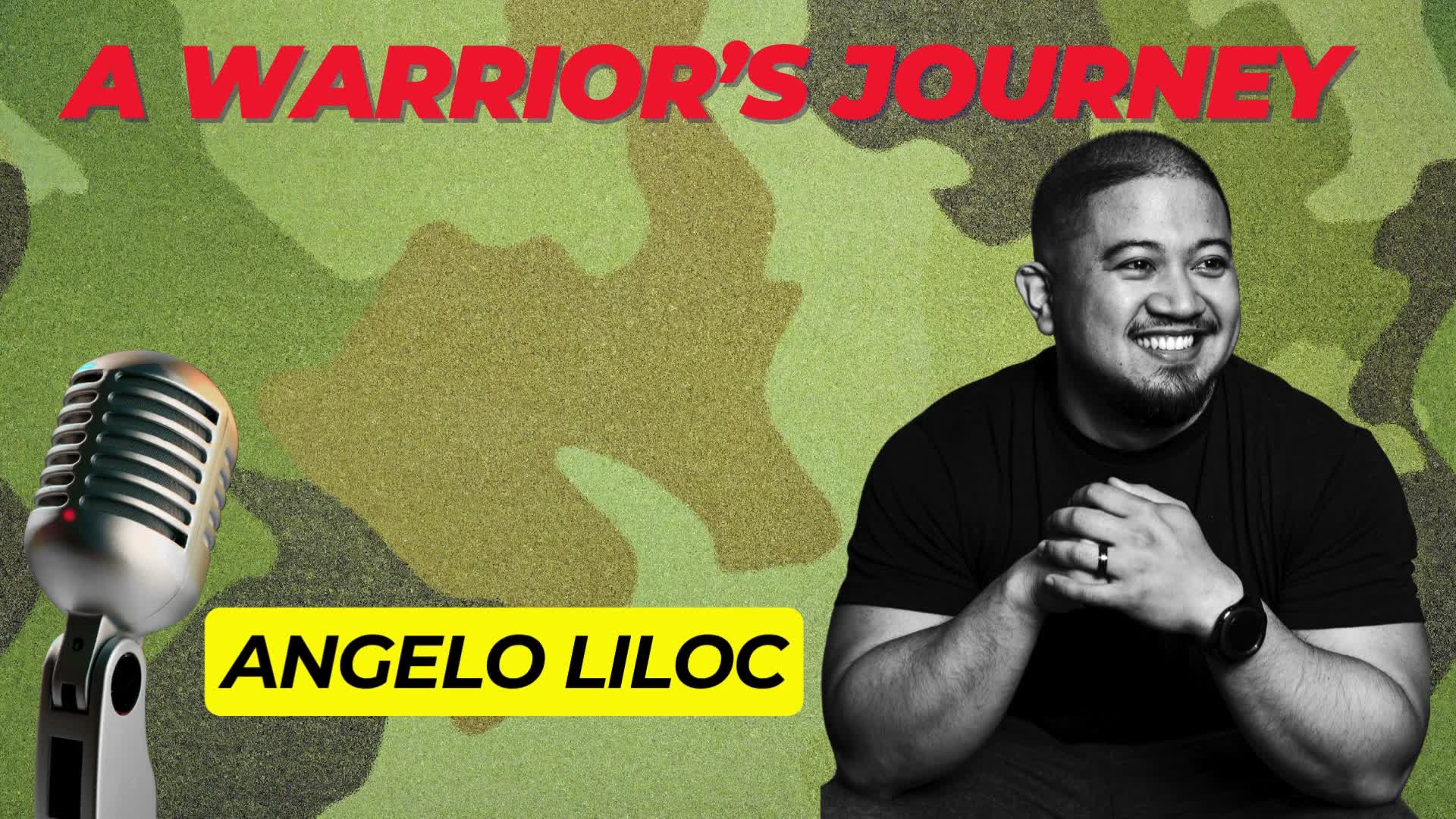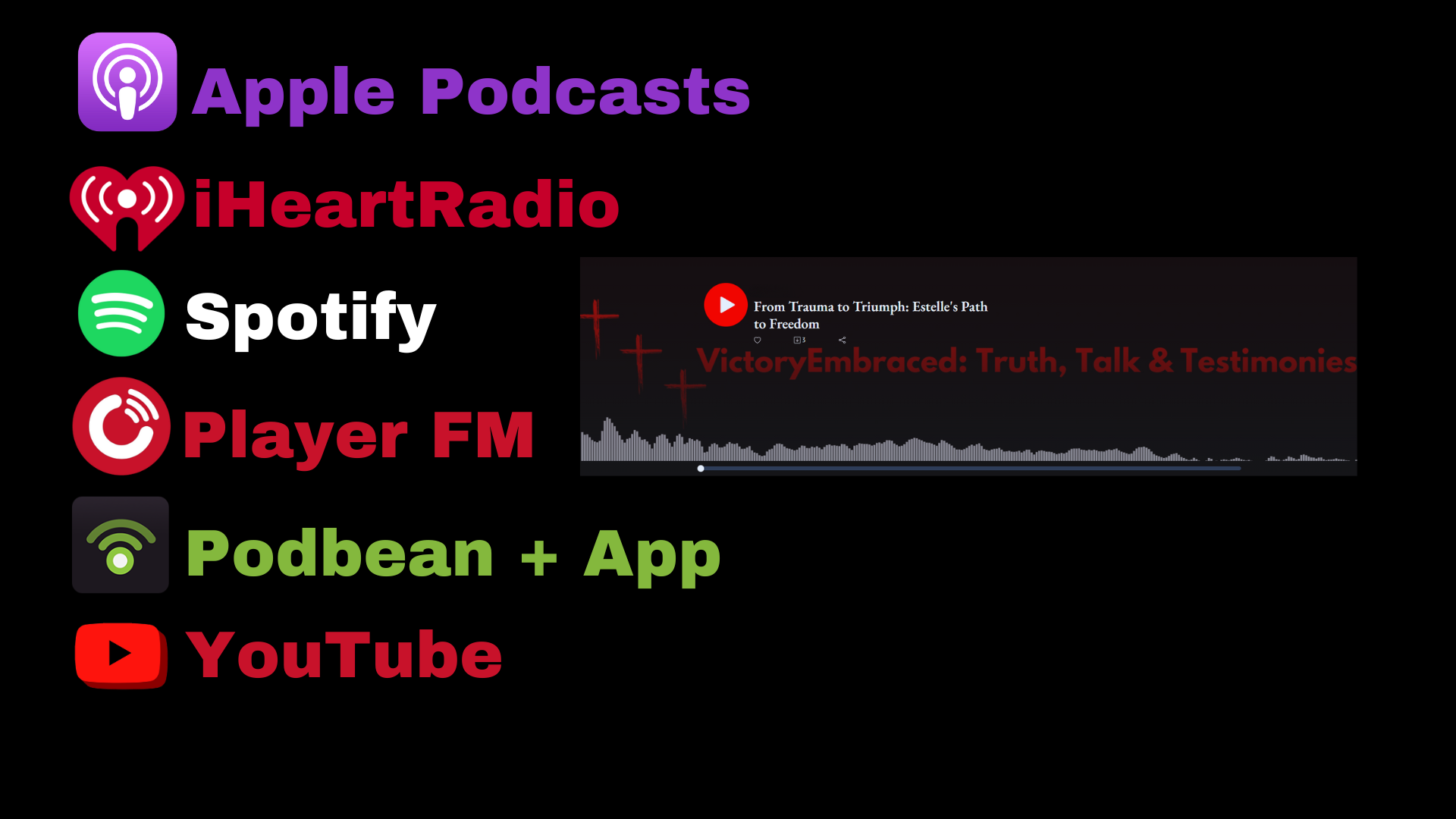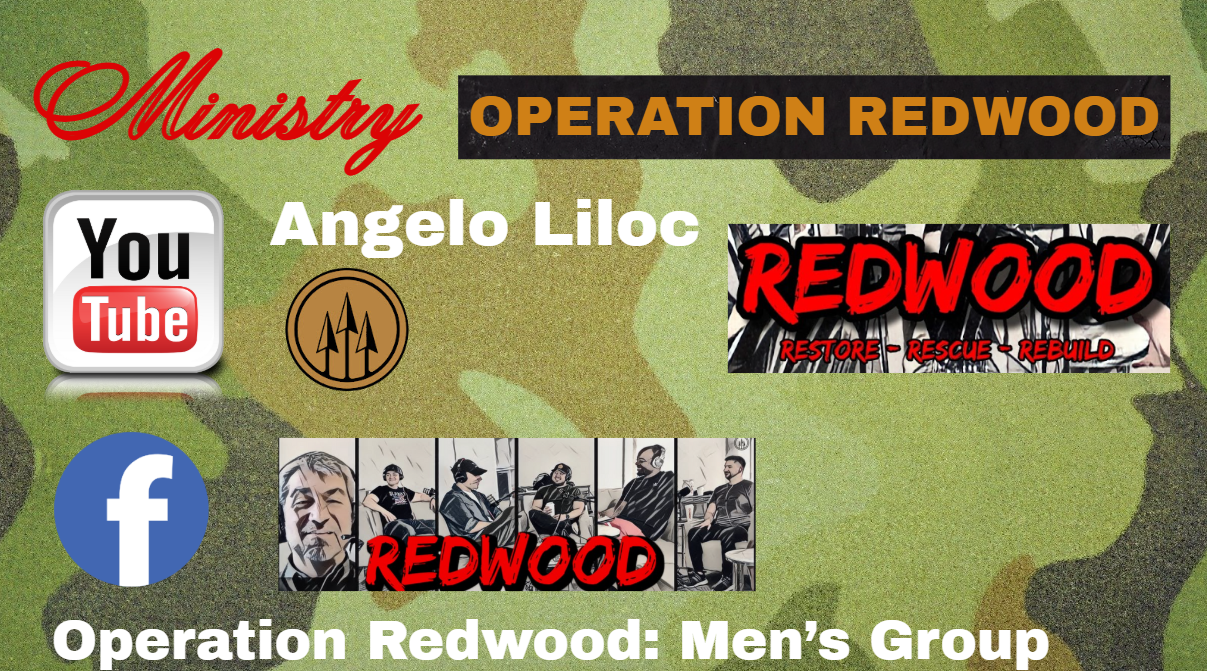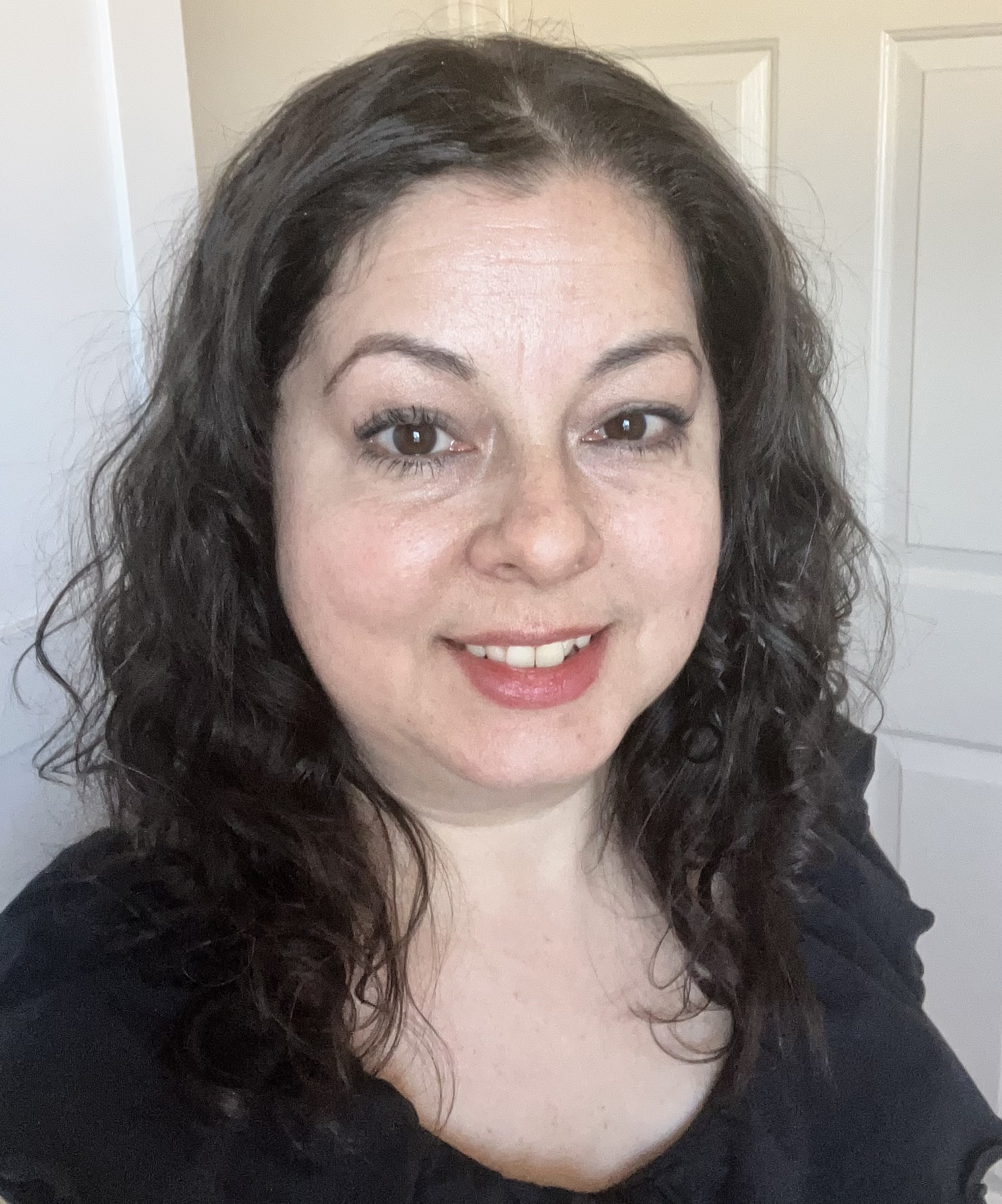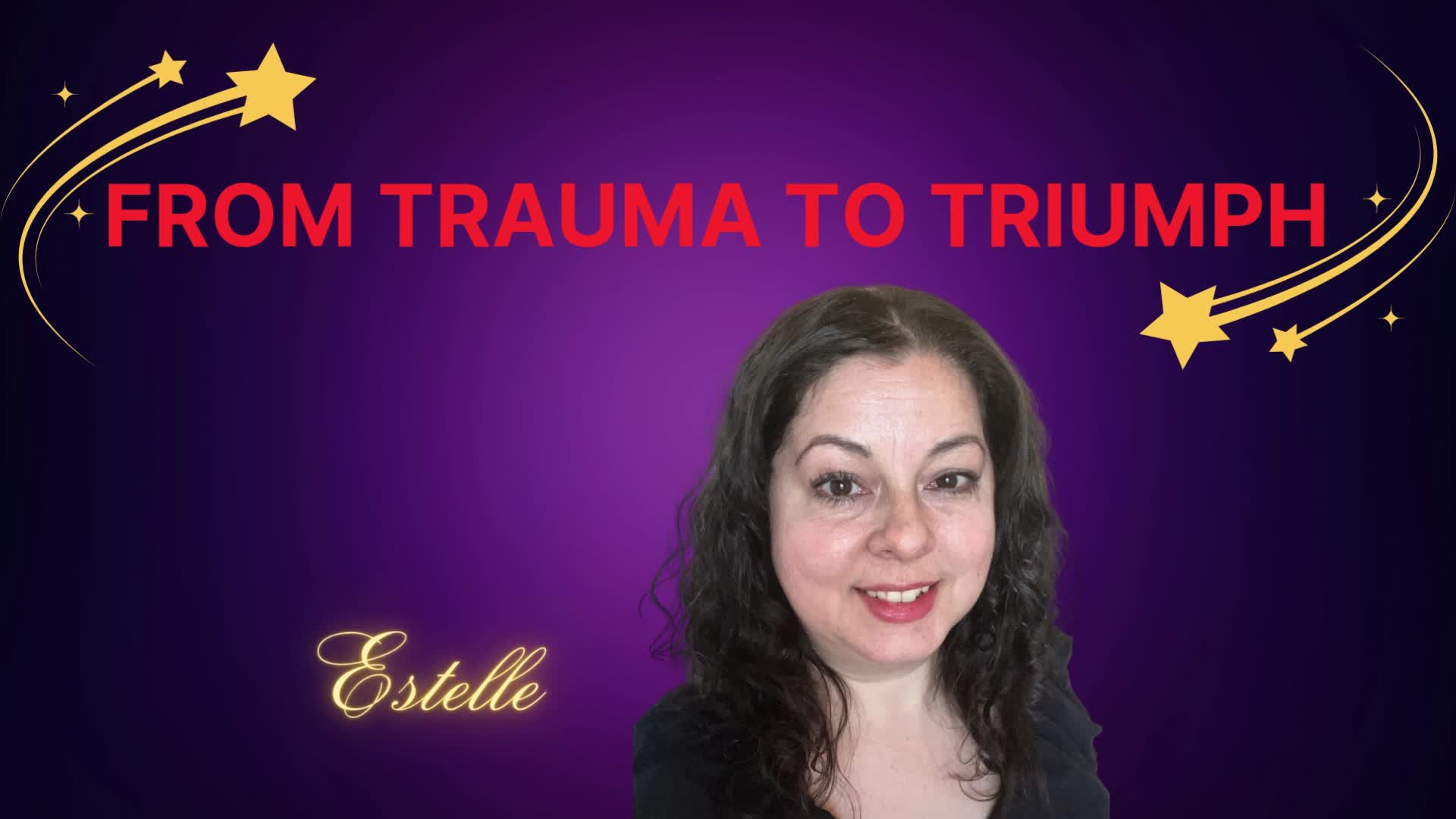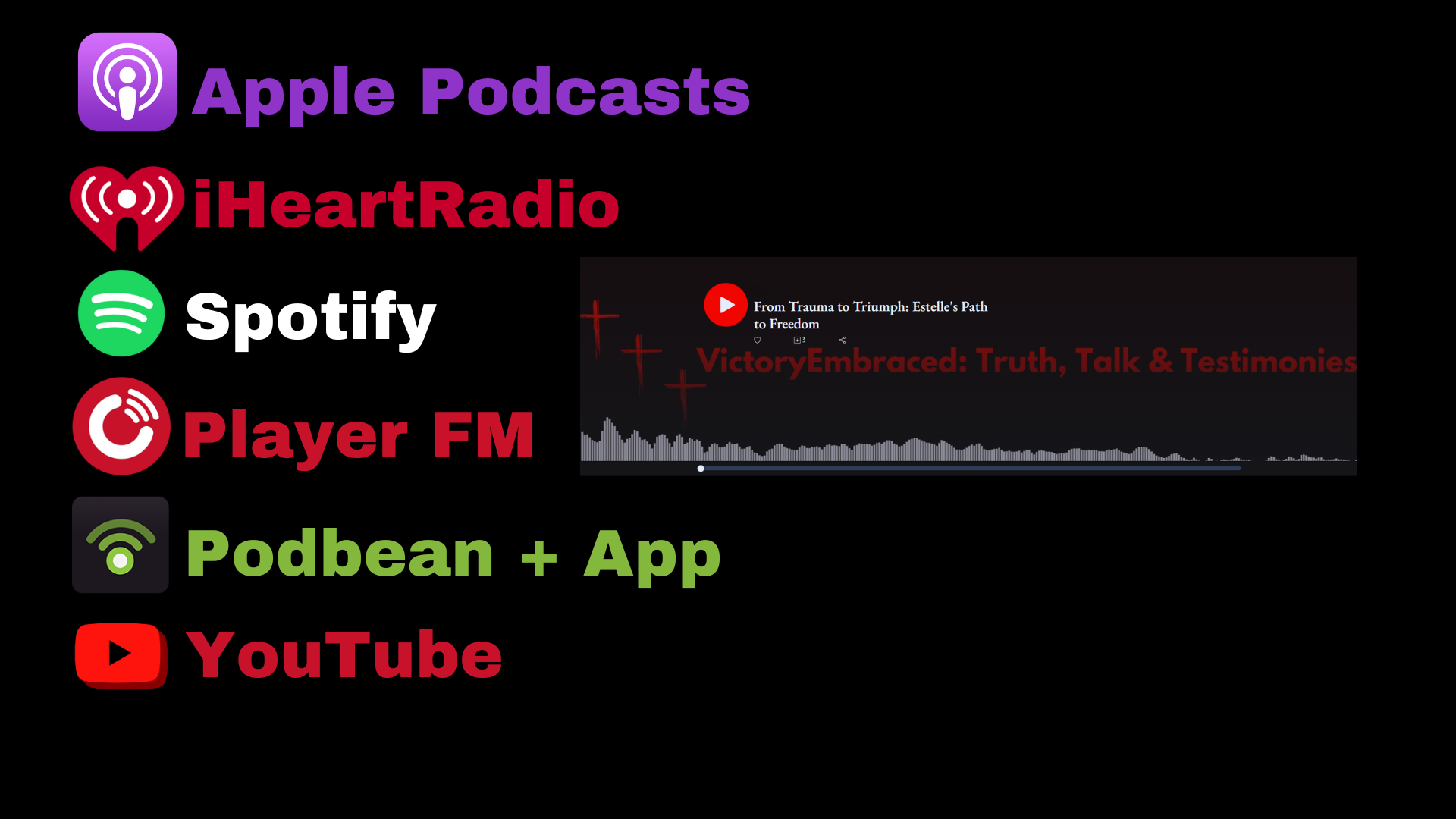After a career-ending injury and the tragic loss of a close friend, Angelo spiraled into depression, addiction, and hopelessness and almost took his life. One Sunday morning, in desperation, he stumbled into a church service in a high school gym, and everything changed. The outcome is a story of redemption and purpose.
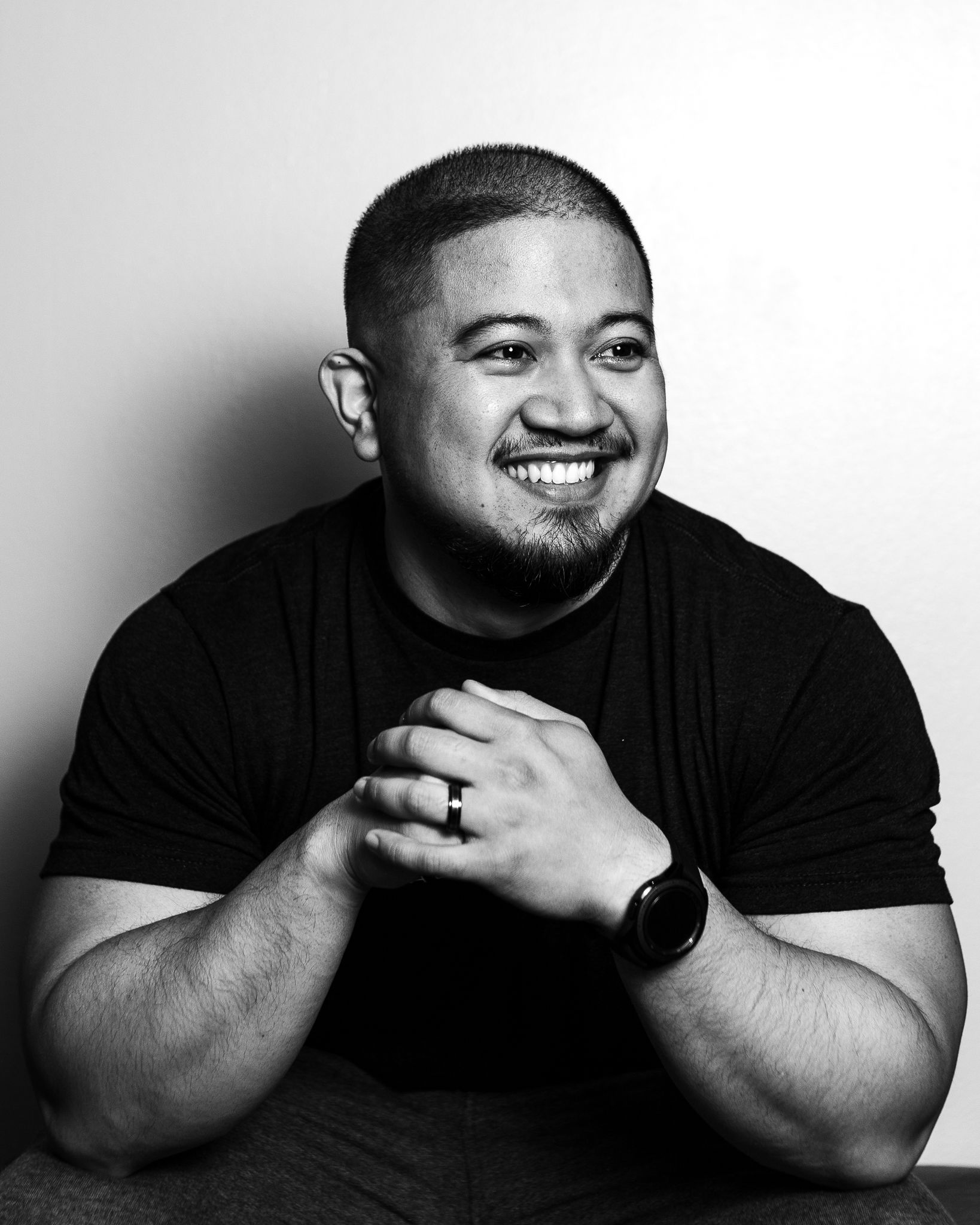
Angelo Liloc
Founder of Operation Redwood--Restore Manhood/Rescue Kids/Rebuild Families
These are Angelo's favorite scriptures...
Angelo shared his story on...
Truth, Talk & Testimonies
Angelo's testimony is also on...
VictoryEmbraced: Truth, Talk & Testimonies podcast platforms
Angelo, can you take us back to when everything in your life began to unravel? What were you going through physically, emotionally, and spiritually?
Yeah. The crazy part is I’ve told this story plenty of times before, and every time I share it, a part of me feels it again. I used to think that was bad, but I realized it’s just a reminder of where God has taken me and taken me through. I used to be a police officer in California, so my background is in law enforcement. I come from a family of warriors—my grandpa and uncles have all served in some form of military, and even my dad was in the US Army, and my little brother was in the Navy. So, growing up, I was always around warriors, sharing stories of all the cool stuff they did. I couldn’t wait until I, too, could share and partake in those stories. When I got out of high school, I got injured, and that took me out of going to the Army, so I went into law enforcement, and it’s still something in the warrior community. So I was in law enforcement at the peak of my career and experienced a lot of darkness and violence day-to-day to the point I turned away from my faith because I was like, “God, how are you letting these crimes and violence happen to these good people?” As a police officer, you go from call to call, never knowing what you’ll encounter—sometimes it’s nothing, and other times it’s crazy, so you don’t see what you’ll step into next. You become desensitized to it because your hormones and adrenaline levels are always up and down. Each day, you arrive unsure if it will be your last, so you master suppressing the trauma you witness to remain fully present for the next call demanding your service or protection. My career took a dramatic turn when I received an invitation to try out for the Police Department SWAT team. This is what I lived for and wanted to do. At this point in my life, I have seen and experienced enough darkness that I have stopped going to church. Growing up, my family and I would attend church every Sunday, but after seeing everything, I got turned off, and everything I saw and experienced didn’t make sense. Preparation eliminates nervousness, as you’ve done everything possible to succeed. Coming up to the day of the SWAT test, I was in the best shape of my life. With all my training and trial runs, I was confident I would make the team. The morning of the SWAT test, I’m prepared and ready to tear it up and get on the team. I had breakfast and was leaving on time, but as I picked up my bags by the door and reached for the doorknob to open it, something didn’t feel right in my heart. I had this weird anxiety, so I shut the door, put my bags down, and did something I hadn’t done in years—I knelt to say a quick “insurance prayer,” and the last part of my prayer to God was, “Let your will be done.” When I got to the police department, I warmed up, and then it was my turn. I started to go through all the obstacles and was having a perfect time, and then I got to the part I had done hundreds of times in the last six months of training: jumping over a wall. I slipped on the grass and hit my knee into the wall, which dislocated my knee and messed up my hips and back. I remember screaming out in pain. All the police chiefs and the staff were there, and I was cursing every word that I could think of. The ambulance took me to the hospital, and I lay in my hospital bed, the pain medicine wearing off. I clicked the button for the nurses to help, and my body was shaking from the pain I was in. So, I called for help, but nobody was coming—I felt invisible. At this moment, I remember thinking, “What is going on? Why can’t I get some medicine?” I looked down in distress and then looked up into the light on the ceiling and started cursing God, “Why did you do this to me? Do you know what I had to sacrifice to get my career? I left my fiancé in Chicago and missed birthdays and other special celebrations. I missed everything, and you take it away like this??!!" Of all the scenarios I envisioned happening in my life and purpose, this was not one of them. And just like a parent reprimands their children, I heard God remind me, “Do you remember that prayer you said? What was the last part?" I was initially surprised, but then I remembered the last part of my morning prayer before the SWAT test: “Whatever happens, Lord, let your will be done.”
All the best doctors in California treated me during my recovery in an attempt to put Humpty Dumpty back together again. My healing wasn’t progressing as quickly as everyone had hoped—I had already injured my other knee. I was eager to return to the streets in uniform in six months. Four months after my accident, my good friend and mentor, Sergeant Scott, died in a shooting on the streets. Another one of my good friends called me, letting me know what happened. After this, my physical therapy and healing stopped progressing. I believe that my healing plateaued because I was hurting so much mentally, physically, emotionally, and spiritually—hurting in every way. Being in my mid-20s, I didn’t know how to cope. I grew up in a family where my dad told us to shake it off. Because what I was going through was an internal emotional and spiritual pain, it was tough. I much prefer to feel physical pain. From that point, my physical therapy progress plateaued and then declined, surprising my doctors. I believe that how most men deal with things is to drink or play video games, and that’s what I did, too. It was my coping mechanism to feel short-term goodness because I was hurting so much. A couple of months later, I got a call from a police department representative, and then they sent my buddy, Rick, to come and get my gear. This is the protocol they go through when they retire an officer. In my mind, I was thinking, “You’re not giving me up just yet, are you? After everything I’ve done for this city!” I remember my buddy coming to take my gun, badge, and radio, putting everything in a box, and then putting it in his trunk—I know it not only hurt me, but it hurt him, too. At that point, I felt my identity as a warrior was slipping away and being put in a box. This happened the same year, and I didn’t understand much about what was happening.
I think many people forget that they may get some sign or message from God, and think everything will be a piece of cake. No, there will be wilderness parts of our lives because we don’t get to where we are overnight, and sometimes we’re asking God to add things to our lives—to give us things—but really, we need to have things taken away. We must remember that subtraction is equally as powerful and important as addition. We’re always praying for more: a better house, a better this, a better that, gives me more. But how are we handling and stewarding the things that we already have? We don’t need to keep adding more. Sometimes, we need things taken away, and I think that’s what God was doing with me—He was taking things away. He let me experience my years in law enforcement and the tactical life, and He was teaching me to trust Him, that He would use everything I have done and learned.
Can you share the Sunday morning you visited a high school parking lot? After this, things began to change.
This was when the stripping away of everything started happening, and I lost my identity as a warrior. Now, I’m confused. What am I supposed to do? I have no degree. I’ve got two messed-up knees, a messed-up hip, and a messed-up back—now, what am I supposed to do? I can’t do the things I want to do. I can’t go to the military. What now? I didn’t want a desk job. I was in such a dark place. And like I said. What do many guys do when they are struggling? We drink and play video games. So, I started drinking, eating a lot, and gaining weight. My wife would come home after work and ask if I was okay. It came to a point where I almost took my life. My wife was at work, and the devil was whispering in my mind that I was nothing, I had no degree, and I was worthless, and how was I going to provide for my wife? So, when she went to work that day, I believed all the lies I could see around me were problems. No one knew I was hurting because I’m a goofy, funny dude who was good at masking things and diverting attention away from me by making people laugh. I fought the lies I was believing and hearing in my head and knew that I couldn’t do it, so I walked out of my apartment using my crutches, got in the car, and just drove. I didn’t know where I was going because I didn’t have a destination—I just kept moving, and then I ended up in this high school parking lot, and with the beautiful California weather, I had all the windows down. In the distance, I could hear music. I recognized this music because I grew up in church. I said, “That sounds like church music, but it’s a high school?” I got out of the car and saw a crowd walking, so I followed them into the gymnasium, a church that rented out the high school for Sunday services. I sat down in the back, and it felt weird but calm and comforting at the same time. The pastor’s name was Ryan, and he preached out of the book of Habakkuk and said to everyone, “Most of you have never heard of this book, and many preachers don’t speak from this book. It’s such a small book in the Bible. A lot of you probably have never even heard of it. When he goes on preaching, he talks about how Habakkuk continued to question God and why He was allowing all these things to happen. Why are you allowing all this violence to happen around me? And I felt he was speaking directly to me. Yeah. Then, Pastor Ryan shared a personal story. One summer, he took a sabbatical, a brief vacation to rest. On his sabbatical, he could spend every day with his daughter, who may have been around 3 or 4 years old. When the sabbatical was over and it was time for him to return to work, his daughter asked him, “Where are you going?” And he told her, “We’re not going to hang out today; I’m sorry, honey. I’ve got to get back to church.” She asked, Why? And he told her, “Well, I’m the pastor, and my sabbatical is over.” She asked, Why? Because, “It’s my responsibility. It’s how I get paid and how we pay the bills.” She kept asking why, and he tried to explain it to her. Then, at one point, his daughter ran away, returned with her piggy bank, gave it to him, and said, “Here you go, Daddy. Now, you don’t have to go back to work anymore.”
He shared that story to reference Habakkuk—sometimes we ask God, “Why this? Why that? Why, why, why?” Why did this happen to me? Why did you allow this? But even if God gave us the answer, we still wouldn’t be able to handle it or fully understand what He’s trying to do in our lives. So it’s like, “Why this, God, why that?” He’s like, no, you’re not going to get it. No, no, no, tell me. Just tell me. No, no, no, you’re not going to get it. Just tell me. I swear I’ll get it. And then He tells us, and we’re like, huh, and it makes no sense. And that’s exactly the feeling I got. I may not understand the darkness that I’m in—I may not understand the violence that’s around me—I may not understand the depression that is going on in my life right now. And I can continue to ask Him why, but even if He gave me the answer, would I be able to receive His answer and understand?
I remember breaking down crying when the praise and worship music started. I knew God had placed me at the perfect time and place with the ideal message to speak into my life. It was perfect. As I was crying with my eyes closed, I felt a cool, watery substance on the top of my head, behind my neck, and on my back, slowly dripping down to my feet. Initially, I thought someone behind me took a bottle of water and poured it on my head, and I almost switched into fight mode, but then I noticed that it didn’t feel like water because it was moving slowly and was cool. At that moment, God told me He loves me and He didn’t forget about me, and it was then that God got my attention.
I shared earlier that my family was a big warrior type. So, I learned my identity as a warrior from my dad, which carried me on to the first half of my career. Still, I knew faith through my mom, and that’s what carried me on for life because when the world took my badge and gun—when the world took my gun, when the world gave me the identity of a warrior and then took it away—the only thing left was my identity as a son and child of God; that was the only thing. This reminds me of one of my favorite scriptures. It’s James 1:2-4 where it says, “My brethren, count it all joy when you fall into various trials, knowing that the testing of your faith produces patience. But let patience have its perfect work, that you may be perfect and complete, lacking nothing.” So, instead of looking at the trials we go through as God hating us, not loving us, or forgetting about us, sometimes He uses opportunities to mold us. Remember when I was talking about adding versus taking away? Sometimes, this is Him taking away, and it’s that identity that people miss. When the world took my identity as a warrior, my identity in Christ carried me through.
So when we live in and by the world, have our confidence come from the world, have our identities be from the world, and have our faith be in the world, when that’s gone, what’s left? I speak confidently because I know what it did to me. When the world took everything away, and I didn’t have anything else, my faith was the last thing I turned to. And yet, you know what? That’s probably the first thing I should have been leaning into this whole time—faith and faith in God and my identity in Him.
What inspired you to start Operation Redwood, and what does the name mean?
I must shout out to my buddy Samuel because he asked me if I was born in Redwood City, California, and if I knew anything about redwood trees. Samuel said the redwood trees are massive, but their roots are shallow and intertwine, so you can’t pull one tree out without pulling all the others out. They can create a stable base because their roots are intertwined like a church community. Then he shared that when one of their seeds falls to the ground, it won’t open up unless there’s some stress put on it, such as fire or a flood—stress needs to be applied to that seed so it can open up and become another redwood tree. That’s like the James 1:2-4 verse. There’s a process in this. I thought Redwood’s idea and name were cool, but didn’t know what to do with it next—it was just a cool name.
Then, I had this dream that my home office was burning. The only things left standing that were not burnt or touched by the fire were my desk and computer; when I talked to people that I trusted about it who are deeply rooted in faith and biblically based, all concluded, including myself, that God was asking me to burn all of this down and focus on Him.
At the time, I had equity in a couple of different companies. And to be completely honest, I was still unhappy. When I left the police department and went into entrepreneurship and business, I thought it would make me happy, but again, it was just trying to fill in the void that the police department had stripped away. The difference now was that I had a daughter. And if you guys have kids, you know, they’re going to see the things that you’re doing, and they’re also going to see the things that you don’t want them to see or do. So, in my mind, I was depressed, and I couldn’t have her replicate that. I couldn’t have her see that this was how I lived. And then, suddenly, maybe she might blame herself. Why Dad’s unhappy, why he’s never satisfied, why he’s always short-tempered, why he’s never giving us grace—that’s not the type of man, husband, or dad that I want to be. It was a six-month battle of trying to figure out if God wanted me to release equity, and, in a sense, I had debt I had to pay off, so I surrendered.
And then God brought that whole Redwood thing that I had spoken to Samuel about months ago up again. If you look at our logo, you’ll see the three spears. Yes, it also looks like trees, which is cool. It stands for restoring manhood, rescuing kids, and rebuilding families. At the core of what we’re trying to do is to restore manhood. I chose the word restore because the buzzword was redefine in the entrepreneurship world at the time—Everyone was redefining fitness, redefining this, and redefining that. But really, we’re not redefining anything.
God already built it to be what it’s supposed to be. So we’re not here to redefine. We’re trying to restore the original blueprint of what God had intended men to be. We desire to restore manhood and rescue kids by donating between 30% and 40% to support companies and organizations that are rescuing and rehabilitating human trafficking victims. Rescuing these kids is just part of it; the second part is that these children experience so much trauma, darkness, and violence, and they need God to come in and fill that hole with light. These children need rehabilitation—these girls’ and women’s identities are going to change, and their understanding of what a man is supposed to be like and what a woman is supposed to be like will change. They need to be restored, and that’s what we’re passionate about. I believe that when a man is whole, he is coming alive; kids, too, will be rescued, homes will be rebuilt, and traditional family values will be restored.
There needs to be a strong man to lead the homes. I’m not trying to take away from women because they have an equally important role. I’m just speaking directly to the men right now. Because that’s what God called us to be, right? There’s a reason He made Adam first and then Eve. There’s a calling for men to step up and be the protectors that they were called to be. I believe that if we’re able to restore manhood, reach the men, and reach the hearts of these men, we’ll be able to save more kids and rebuild family values so that the whole trafficking stuff starts to push that back because that is evil and satanic.
Imagine the generations impacted—these women and kids will eventually become parents, and if their foundation is already rooted in that darkness, what do you think their kids will experience? So, Redwood has a two-pronged approach. One, we’re approaching men because men are the main offenders. We’re trying to reach the hearts of men and bring Jesus into their world, meeting them where they’re at. Change their hearts. And then, hopefully, that will lead to rescuing more kids, and that will lead to rebuilding more families. If we stick to what we do at Redwood, and our specialty is working with men, you know, helping them find vision, helping them find clarity, and helping them rebuild. If God can trust us to be faithful in a few things, then He can trust us to be faithful with all the other things He will entrust us with all for His glory.
What encouraging last words can you share?
There’s a story in the Bible of the parable of the talents, and many people are familiar with it. There was a master who had three servants. He gave five talents to one servant, to another, he gave two, and to another, he gave one. The master left, but when he returned, the guy with five talents made it ten, the one given two made two more, and the one given one talent hid it because he was afraid. I want people to take away that God sometimes gives people five, sometimes two, and sometimes one, yes, but I want people to remember that God never made zero-talent people. God never made you with zero talents. At the very least, you have at least one. I believe you have many more. And if you look deeper into the scripture, they say that when the master gave his servant the five, two, and one talent, he gave it according to their ability. You have something hidden in you that maybe you haven’t fully discovered yet that God still wants to use. God still wants to take whatever talent and make it more of a blessing to other people, just like we discussed earlier. No matter how dark it may be for you, no matter how lost you feel, or maybe a lack of identity or lack of vision, you need to remember that you were made on purpose, with a purpose, and He never made zero-talent people—you still have a story to tell—you still have a gift to share with the world, so don’t give up.
Operation Redwood YouTube Channel & Facebook Men's Group
